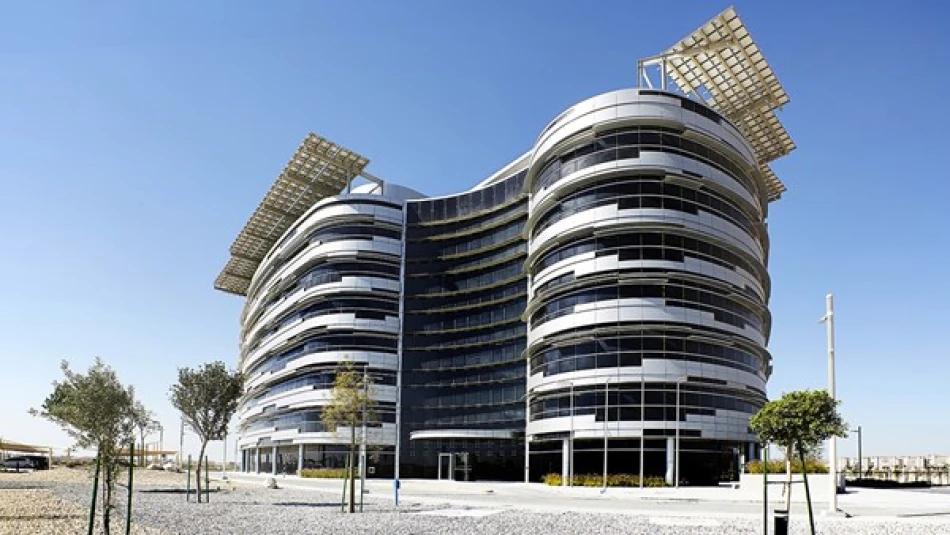
Abu Dhabi Hosts IRENA's 29th Council Meeting, Driving Global Renewable Energy Agenda
Abu Dhabi Hosts Critical Energy Security Summit as Global Supply Chain Vulnerabilities Expose Renewable Transition Risks
The International Renewable Energy Agency (IRENA) convenes its 29th Council meeting in Abu Dhabi this week, bringing together over 400 government officials from 169 countries to address a pressing challenge: the dangerous concentration of renewable energy supply chains in just a handful of nations. As the world races to triple renewable capacity by 2030, supply chain vulnerabilities threaten to undermine energy security goals and geopolitical stability.
Supply Chain Concentration Creates New Energy Dependencies
The two-day summit highlights a critical paradox in the global energy transition. While renewable energy promises greater energy independence, current supply chains remain heavily concentrated geographically, creating new forms of dependency that could rival traditional fossil fuel vulnerabilities.
IRENA Director-General Francesco La Camera emphasized this challenge: "Diversified, resilient and transparent supply chains are essential to achieve the goal of tripling renewable energy capacity by 2030. While the transition to renewable energy sources is a key enabler of energy security and independence, global supply chains are still concentrated in a small number of countries."
Solar Power's Geopolitical Reality Check
The meeting places particular focus on solar photovoltaic supply chains, where China currently dominates manufacturing across the entire value chain—from polysilicon production to module assembly. This concentration became painfully evident during recent trade disputes and pandemic-related disruptions, forcing governments to reconsider their renewable energy strategies.
Regional Manufacturing Push Gains Momentum
The summit's emphasis on enhancing regional manufacturing capabilities reflects a broader global trend. The United States' Inflation Reduction Act, Europe's Green Deal Industrial Plan, and India's Production-Linked Incentive schemes all aim to build domestic renewable energy manufacturing capacity.
This shift represents more than economic policy—it's a recognition that energy security in the renewable age requires manufacturing sovereignty. Countries that rushed to embrace cheap solar panels and wind turbines are now discovering the strategic importance of controlling their own supply chains.
Investment Implications for Clean Energy Markets
For investors, the supply chain diversification drive signals significant opportunities in emerging manufacturing hubs. Southeast Asian countries like Vietnam and Malaysia are already capturing market share, while Middle Eastern nations leverage their industrial capabilities and strategic locations.
The focus on sustainable aviation fuel represents another major investment theme. As one of the hardest-to-decarbonize sectors, aviation fuel alternatives could unlock billions in investment opportunities, particularly in regions with strong agricultural sectors or abundant renewable energy resources.
Costa Rica's Leadership Reflects Developing World Priorities
The appointment of Costa Rica's Ambassador Francisco Chacón Hernández as Council President signals IRENA's commitment to developing world perspectives. Costa Rica, which generates nearly 100% of its electricity from renewables, offers a compelling model for other nations.
Chacón Hernández outlined ambitious priorities: "As Costa Rican President of the 29th Council meeting, we will place topics such as energy transition, decarbonization, and renewable energy sources at the forefront of our goals and ideas."
Beyond Technology: Building Resilient Energy Ecosystems
The Abu Dhabi meeting represents a maturation of renewable energy policy thinking. Early adoption focused primarily on cost reduction and deployment speed. Today's discussions center on resilience, security, and long-term sustainability of the entire energy ecosystem.
This evolution mirrors broader geopolitical trends where economic interdependence is being reassessed through security lenses. The renewable energy sector is learning lessons that traditional industries discovered decades ago: diversification isn't just good business practice—it's essential for national security.
The Path Forward: Balancing Efficiency with Security
As IRENA's 169 member countries—with 15 more seeking membership—chart the future of global energy policy, they face complex tradeoffs between economic efficiency and strategic autonomy. The cheapest renewable energy may not always be the most secure.
The Abu Dhabi summit's outcomes will likely influence national energy policies, international trade relationships, and investment flows for years to come. Success will be measured not just in gigawatts deployed, but in the resilience and diversity of the systems that power the renewable revolution.
Most Viewed News

 Layla Al Mansoori
Layla Al Mansoori






